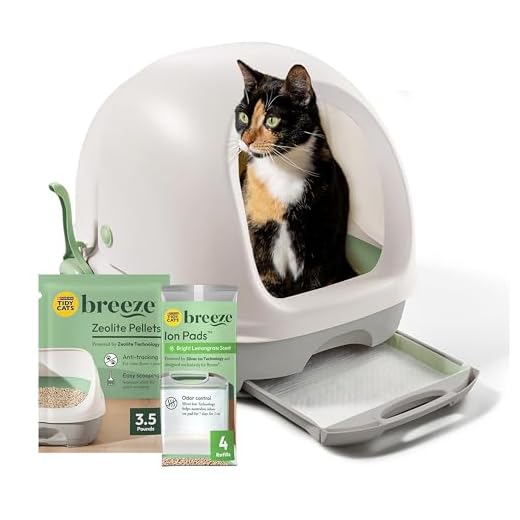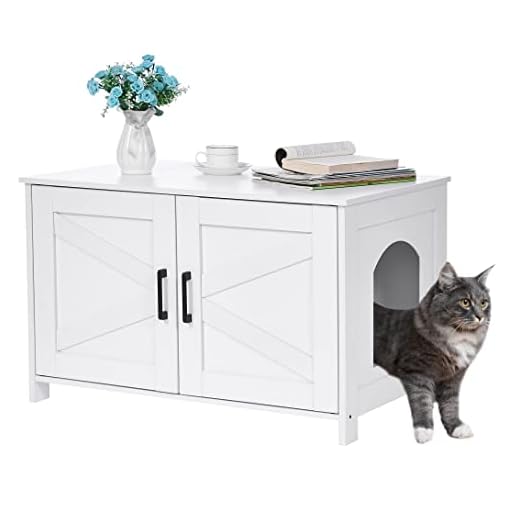



First off, if I’m leaving unexpected gifts on your favorite spot, it’s time to check a few things. Ensure my litter box is clean and accessible. A dirty or inconveniently placed box can be a significant reason for my unexpected actions.
Next, stress can trigger this kind of behavior. Any changes in our environment, like new pets, loud noises, or even rearranged furniture, can make me anxious. Consider creating a calm space for me, complete with my favorite toys and comfy spots.
Health is another factor. If I’m feeling unwell, I might not always make it to my usual place. Keep an eye out for any signs of discomfort or changes in my eating habits, and consult a vet if necessary. Catching issues early can prevent further accidents.
Lastly, marking territory is instinctive for me. If I perceive my space as threatened, I might resort to this behavior. Providing me with my own secure areas can help me feel more at ease. Remember, I just want to feel safe and happy!
Understanding Medical Issues Behind Feline Incontinence
Frequent accidents around the house can indicate underlying health problems. It’s essential to consider various medical issues that might lead to these occurrences. Urinary tract infections (UTIs) are a common culprit; they can cause discomfort, leading to inappropriate elimination. If you notice signs of straining or frequent attempts to urinate, a vet visit is necessary.
Kidney disease also plays a significant role. As felines age, their kidneys may not function optimally, leading to increased thirst and urination. This condition requires prompt veterinary attention to manage effectively. Diabetes mellitus can similarly cause excessive urination, and recognizing other symptoms like increased thirst is critical for timely intervention.
Behavioral Factors Linked to Medical Conditions
Sometimes, stress or anxiety can manifest physically. If a furry companion is feeling anxious due to changes in the environment, it may lead to accidents. It’s vital to create a calm atmosphere and consult with a vet about potential behavioral issues. Additionally, certain medications can have side effects that result in incontinence, so always discuss any treatments being administered.
Consulting with a Veterinarian
Regular check-ups are crucial for identifying medical issues early. If your furry friend starts exhibiting unusual behavior, such as inappropriate elimination, don’t hesitate to seek professional advice. Early diagnosis can make a significant difference in treatment outcomes. Always rule out medical factors before attributing it to behavioral problems. For more information on safe products around pets, check if is lemon essential oil safe for cats.
Behavioral Triggers for Urination Outside the Litter Box
Feeling stressed can lead to unusual bathroom habits. Changes in the environment, such as moving furniture or new pets, might create anxiety. I highly recommend maintaining a consistent atmosphere, as it helps keep my mindset stable.
Territorial marking is another reason behind this behavior. If I sense other animals nearby, I might assert my dominance by claiming my space. Providing multiple litter boxes in different areas can help ease this situation.
Attention-seeking behavior often plays a role too. If I notice that a specific action brings extra attention, I could repeat it. Engaging me in play or offering more affection can redirect this tendency.
Sometimes, it’s about the litter itself. If the texture or scent doesn’t appeal to me, I might refuse to use the box. Experimenting with different types can help find what I prefer.
Lastly, boredom can lead to mischief. Ensuring I have plenty of stimulating toys and activities keeps me entertained and less likely to act out inappropriately.
Video:
First off, if I’m leaving unexpected gifts on your favorite spot, it’s time to check a few things. Ensure my litter box is clean and accessible. A dirty or inconveniently placed box can be a significant reason for my unexpected actions.
Next, stress can trigger this kind of behavior. Any changes in our environment, like new pets, loud noises, or even rearranged furniture, can make me anxious. Consider creating a calm space for me, complete with my favorite toys and comfy spots.
Health is another factor. If I’m feeling unwell, I might not always make it to my usual place. Keep an eye out for any signs of discomfort or changes in my eating habits, and consult a vet if necessary. Catching issues early can prevent further accidents.
Lastly, marking territory is instinctive for me. If I perceive my space as threatened, I might resort to this behavior. Providing me with my own secure areas can help me feel more at ease. Remember, I just want to feel safe and happy!
Understanding Medical Issues Behind Feline Incontinence
Frequent accidents around the house can indicate underlying health problems. It’s essential to consider various medical issues that might lead to these occurrences. Urinary tract infections (UTIs) are a common culprit; they can cause discomfort, leading to inappropriate elimination. If you notice signs of straining or frequent attempts to urinate, a vet visit is necessary.
Kidney disease also plays a significant role. As felines age, their kidneys may not function optimally, leading to increased thirst and urination. This condition requires prompt veterinary attention to manage effectively. Diabetes mellitus can similarly cause excessive urination, and recognizing other symptoms like increased thirst is critical for timely intervention.
Behavioral Factors Linked to Medical Conditions
Sometimes, stress or anxiety can manifest physically. If a furry companion is feeling anxious due to changes in the environment, it may lead to accidents. It’s vital to create a calm atmosphere and consult with a vet about potential behavioral issues. Additionally, certain medications can have side effects that result in incontinence, so always discuss any treatments being administered.
Consulting with a Veterinarian
Regular check-ups are crucial for identifying medical issues early. If your furry friend starts exhibiting unusual behavior, such as inappropriate elimination, don’t hesitate to seek professional advice. Early diagnosis can make a significant difference in treatment outcomes. Always rule out medical factors before attributing it to behavioral problems. For more information on safe products around pets, check if is lemon essential oil safe for cats.
Behavioral Triggers for Urination Outside the Litter Box
Feeling stressed can lead to unusual bathroom habits. Changes in the environment, such as moving furniture or new pets, might create anxiety. I highly recommend maintaining a consistent atmosphere, as it helps keep my mindset stable.
Territorial marking is another reason behind this behavior. If I sense other animals nearby, I might assert my dominance by claiming my space. Providing multiple litter boxes in different areas can help ease this situation.
Attention-seeking behavior often plays a role too. If I notice that a specific action brings extra attention, I could repeat it. Engaging me in play or offering more affection can redirect this tendency.
Sometimes, it’s about the litter itself. If the texture or scent doesn’t appeal to me, I might refuse to use the box. Experimenting with different types can help find what I prefer.
Lastly, boredom can lead to mischief. Ensuring I have plenty of stimulating toys and activities keeps me entertained and less likely to act out inappropriately.
Video:
First off, if I’m leaving unexpected gifts on your favorite spot, it’s time to check a few things. Ensure my litter box is clean and accessible. A dirty or inconveniently placed box can be a significant reason for my unexpected actions.
Next, stress can trigger this kind of behavior. Any changes in our environment, like new pets, loud noises, or even rearranged furniture, can make me anxious. Consider creating a calm space for me, complete with my favorite toys and comfy spots.
Health is another factor. If I’m feeling unwell, I might not always make it to my usual place. Keep an eye out for any signs of discomfort or changes in my eating habits, and consult a vet if necessary. Catching issues early can prevent further accidents.
Lastly, marking territory is instinctive for me. If I perceive my space as threatened, I might resort to this behavior. Providing me with my own secure areas can help me feel more at ease. Remember, I just want to feel safe and happy!
Understanding Medical Issues Behind Feline Incontinence
Frequent accidents around the house can indicate underlying health problems. It’s essential to consider various medical issues that might lead to these occurrences. Urinary tract infections (UTIs) are a common culprit; they can cause discomfort, leading to inappropriate elimination. If you notice signs of straining or frequent attempts to urinate, a vet visit is necessary.
Kidney disease also plays a significant role. As felines age, their kidneys may not function optimally, leading to increased thirst and urination. This condition requires prompt veterinary attention to manage effectively. Diabetes mellitus can similarly cause excessive urination, and recognizing other symptoms like increased thirst is critical for timely intervention.
Behavioral Factors Linked to Medical Conditions
Sometimes, stress or anxiety can manifest physically. If a furry companion is feeling anxious due to changes in the environment, it may lead to accidents. It’s vital to create a calm atmosphere and consult with a vet about potential behavioral issues. Additionally, certain medications can have side effects that result in incontinence, so always discuss any treatments being administered.
Consulting with a Veterinarian
Regular check-ups are crucial for identifying medical issues early. If your furry friend starts exhibiting unusual behavior, such as inappropriate elimination, don’t hesitate to seek professional advice. Early diagnosis can make a significant difference in treatment outcomes. Always rule out medical factors before attributing it to behavioral problems. For more information on safe products around pets, check if is lemon essential oil safe for cats.
Behavioral Triggers for Urination Outside the Litter Box
Feeling stressed can lead to unusual bathroom habits. Changes in the environment, such as moving furniture or new pets, might create anxiety. I highly recommend maintaining a consistent atmosphere, as it helps keep my mindset stable.
Territorial marking is another reason behind this behavior. If I sense other animals nearby, I might assert my dominance by claiming my space. Providing multiple litter boxes in different areas can help ease this situation.
Attention-seeking behavior often plays a role too. If I notice that a specific action brings extra attention, I could repeat it. Engaging me in play or offering more affection can redirect this tendency.
Sometimes, it’s about the litter itself. If the texture or scent doesn’t appeal to me, I might refuse to use the box. Experimenting with different types can help find what I prefer.
Lastly, boredom can lead to mischief. Ensuring I have plenty of stimulating toys and activities keeps me entertained and less likely to act out inappropriately.












